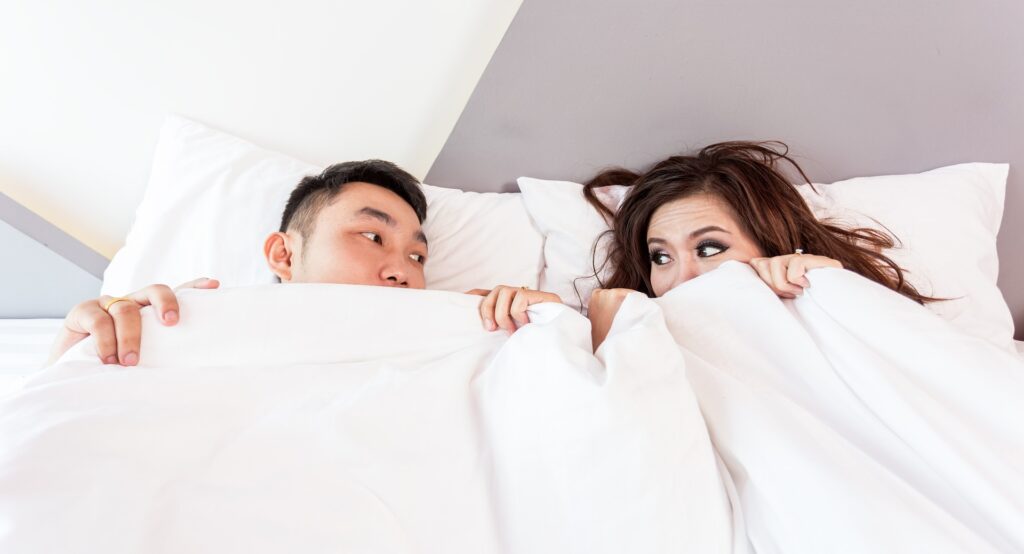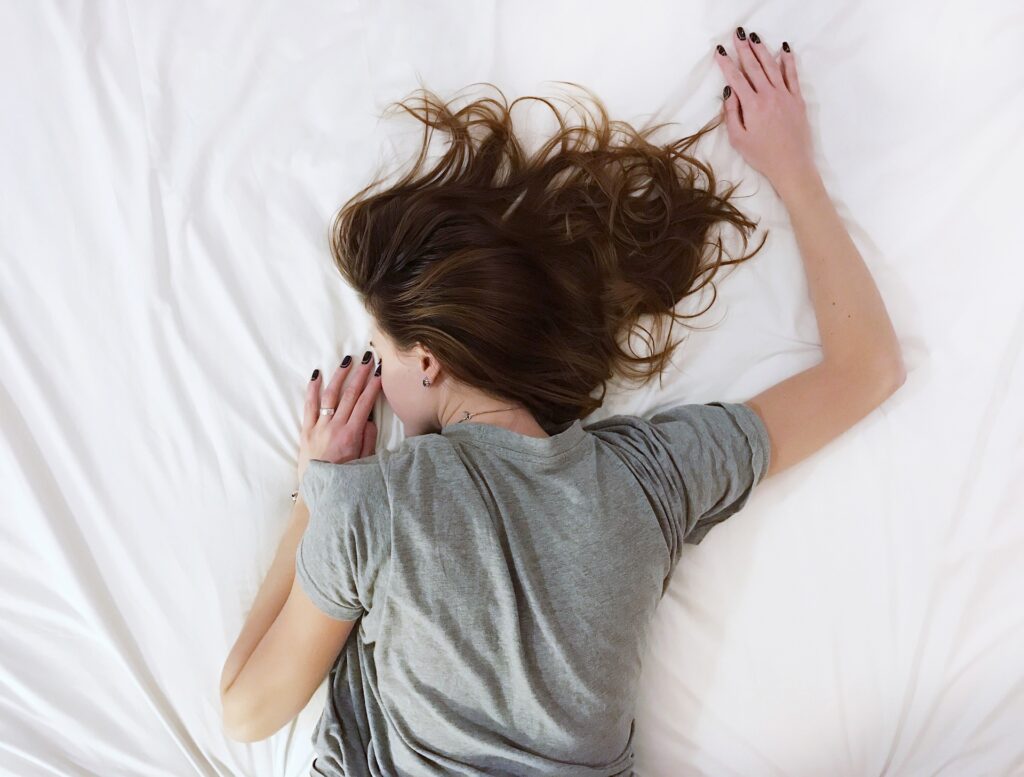
How to cure insomnia in 12 minutes? If you struggle with insomnia, it can be debilitating. This sleep disorder interferes with the normal process of sleeping, which leads to unrefreshing sleep and can even make it harder for you to function during the day.
Insomnia is a common problem and can be hard to treat, but there are simple things you can do to improve your sleep. We’ll try to inform you on how to cure insomnia in 12 minutes more or less.
There are many home remedies for insomnia, including establishing a regular sleep schedule, practicing relaxation techniques like deep breathing or meditation, keeping your bedroom cool and dark, and avoiding caffeine, alcohol, and heavy meals before bed.
These tips can help you get a better night’s rest, but you may need to try a few different methods before you find the solution that works for you.
What you should know about sleep medications
If all else fails, there are many over-the-counter sleep medications that can be taken to help you fall asleep. However, taking sleep meds isn’t a long-term solution and should be considered only when necessary. It’s also important to consider the side effects of these drugs and whether they are appropriate for your lifestyle.
Getting enough sleep is important for your physical and mental health. If you have trouble falling asleep, there are steps you can take to cure insomnia in 12 minutes. You can also use a weighted blanket that puts pressure on the body and has a calming effect similar to a hug. Lastly, you can also increase the darkness in your room to stimulate melatonin production and promote sleepiness.
Herbs that make you sleep instantly
Sleep is the natural way of resting and healing the body, but many people struggle to get a good night’s sleep. Sleep deprivation can be caused by numerous factors, from a hectic lifestyle to anxiety and stress.
Herbal remedies can help to ease the symptoms of insomnia and promote a restful sleep. They can be taken in a variety of ways, such as herbal tea, tinctures or glycetracts. Unlike over-the-counter drugs, herbal treatments are gentle and are more likely to have a natural effect on the body.
Chamomile is a flowering plant that has been used in traditional medicine for centuries, as it soothes the nerves and helps with insomnia. It contains apigenin, which binds to the GABA (gamma-aminobutyric acid) receptors in the brain and has a sedative effect. It also relaxes the muscles and reduces irritability, which can cause insomnia. Chamomile can be found in herbal tea, tincture or as an essential oil.
Lavender is a popular herbal remedy for sleep disorders, as it has calming properties. It also alleviates feelings of anxiety, which can keep you awake at night, and promotes a deeper level of relaxation.
It has antidepressant, sedative and balancing effects that can calm migraines and mood disorders. You can drink a cup of lavender-infused tea, add the oil to your pillow or use it as a vapor rub before you sleep.
Another herb to try is Ashwagandha, which has been proven to improve the onset of sleep and quality of rest. It relieves the causes of insomnia and acts like a natural sleep enhancer by boosting serotonin levels in the body. It also has antioxidant properties, which protect the brain from damage and inflammation.
Plants that put you to sleep instantly
We all know that getting a good night’s sleep is key to a healthy lifestyle. From limiting blue light to meditating before bed, there are many ways that you can help yourself fall asleep faster. But what you may not know is that plants can also be great sleep aids. They help purify the air, create a cozy decor element and can even release calming scents that make it easier to relax.
Lavender plants are one of the most well-known plant sleep inducers and for good reason. They reduce anxiety levels; slow your heart rate and lower blood pressure, all of which are great for promoting sleep.
Valerian root is a natural sedative and has been used for centuries to treat insomnia and other sleep-related issues. If you find yourself struggling to sleep, try inhaling the root of a valerian plant, or consuming an herbal tea made from the plant.
The snake plant, commonly known as mother-in-law’s tongue, is another great sleep inducer that you can keep in your bedroom. It is one of the best plants to help you sleep because it releases oxygen at night which can improve your quality of slumber.
It’s also a great air purifier and is known to remove harmful chemicals from the air including xylene, trichloroethylene, toluene and formaldehyde. It’s also one of the few plants that can tolerate neglect which makes it an easy addition to your bedroom.
Weird feeling when trying to fall asleep
Weird feeling when trying to fall asleep is a common problem for millions of Americans. This sensation can come in the form of heart palpitations or feelings like your throat is closing or you’re having a panic attack. These symptoms can be especially disconcerting if they occur while you’re resting or in deep relaxation.
If you’re experiencing these sensations while you’re sleeping, it may be a sign of sleep disturbances or other problems with your body or mind. If you’re having these symptoms frequently, it’s best to talk to your doctor about them.
These are called hypnic jerks or hypnagogic jerks. They’re involuntary muscle spasms that occur as you’re transitioning between sleep and being awake. This can jolt you out of a deep slumber and give you the impression that you’re falling. They’re not harmful and are very common.
Another way that people experience weird sensations when they’re trying to fall asleep is through dreams or nightmares. These are a natural part of the sleep cycle and can cause anxiety for some people.
The best thing to do is to try to relax and fall asleep naturally. This can be difficult if you have anxiety, but there are many techniques to help you relax and get to sleep. Often, you can practice calming activities, such as meditation or conscious relaxation. You can also reserve your bed for sleep and avoid doing other things in it, like watching TV or working on your computer.

How to stop moving while sleeping
While it may seem like you spend the night tossing and turning, looking for the ideal sleeping position that will finally put you to sleep, this is not good for your health or quality of rest. Several things can cause this movement, including stress, misaligned circadian rhythm, sleep disorders and even a squeaky mattress.
Children can also move a lot while they sleep, but this is normal and typically occurs as part of the way their sleep process develops. It is important to talk with your child’s doctor if the movements significantly injure them or disturb other family members, Koyama says.
The doctor will ask you to complete a two-week sleep diary, noting when your child moves and what other symptoms she’s having. She will also want to know your child’s medical history, any medications your child is taking and if your child has ever had any other sleep issues in the past.
Some of the things that can cause a person to move while they sleep include periodic leg movement disorder (PLMD), restless legs syndrome and sleep paralysis. PLMD causes cramping and jerking of the legs during sleep.
RLS feels like a tug in the legs or arms that gets worse with resting and sleeping. People who have sleep paralysis experience episodes of feeling locked out of their bodies, which last for seconds to a few minutes and are usually triggered by touch or noise.
If you’re suffering from PLMD, your doctor can prescribe medication to help ease the movements and treat any other conditions that may be causing it, such as low iron levels or an underactive thyroid.
He may also suggest other ways to ease the symptoms, such as avoiding caffeine and alcohol, getting regular exercise, massaging the legs before bedtime and using hot or cold compresses.
Is feeling agitated when trying to sleep a medical condition?
If you’re tossing and turning all night, it’s not just frustrating it may be a sign that you have an underlying medical condition. You can take steps to improve your rest, starting with a comfortable bed and good sleep hygiene.
Check out our market to find editor-trusted and expert-verified mattress and pillow recommendations. You can also practice relaxation techniques, like meditation or deep breathing, which have been shown to decrease agitation and stress.
If the feeling of agitation is severe or comes and goes, talk to your doctor. They’ll help you find the source of your agitation, and possibly prescribe medication to ease it. Agitation can occur with conditions such as dementia, schizophrenia, bipolar disorder, and substance use disorders. It can also be a side effect of antipsychotic medications, such as akathisia.
Feeling agitated can make it hard to fall asleep, especially if you’re feeling tense in your body, too. This can be a result of overworking or having a demanding social life. It’s also common during stressful times in your life, such as when you have a health problem or major lifestyle changes.
Agitation can also be a symptom of depression, and it’s often combined with feelings of anxiety and restlessness. It’s sometimes referred to as manic-depressive depression or mixed depression.
Depression can cause hopelessness and loss of interest in life, while agitation is characterized by feelings of restlessness and tension. It can be difficult to distinguish agitation from anxiety, but you can get the help you need for both by talking with your doctor.
